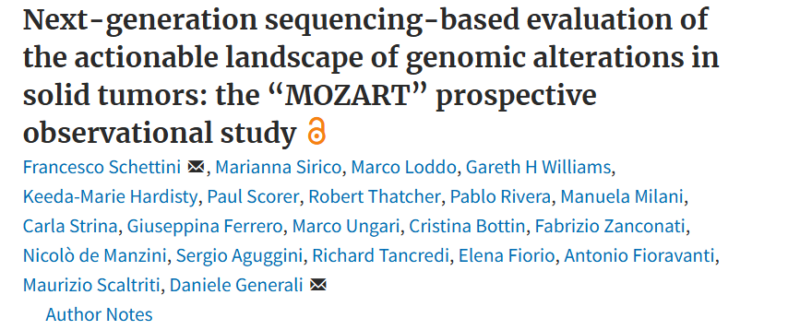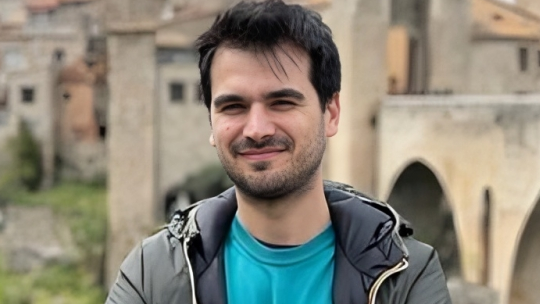Francesco Schettini, Medical Oncologist at the Breast Unit of the Hospital Clinic of Barcelona, posted on X about recent paper by him as first author, titled “Next-generation sequencing-based evaluation of the actionable landscape of genomic alterations in solid tumors: the ‘MOZART’ prospective observational study” published on The Oncologist.
Authors: Francesco Schettini, Marianna Sirico, Marco Loddo, Gareth H Williams, Keeda-Marie Hardisty, Paul Scorer, Robert Thatcher, Pablo Rivera, Manuela Milani, Carla Strina, Giuseppina Ferrero, Marco Ungari, Cristina Bottin, Fabrizio Zanconati, Nicolò de Manzini, Sergio Aguggini, Richard Tancredi, Elena Fiorio, Antonio Fioravanti, Maurizio Scaltriti, Daniele Generali

“Proud to share our latest work: the MOZART study. We explored the actionable genomic landscape (505 genes + TMB) in >200 metastatic solid tumors, checked correlations between PDL1 expression and genomic alterations and ESCAT % per tumor type.
- 304 solid tumors treated in I-II line were screened with a NGS test
- 78% harbored different genomic alterations. However, as per ESCAT scale by ESMO, tier I-II alterations were detected only in 34.5% cases, with detection rate >10% only in melanoma, NSCLC, breast and CRPC
- The median number of mutant genes/tumor was 2.0 (IQR: 1.0-3.0)
- The DNA damage repair (14%), the PI3K/AKT/mTOR (14%), and the RAS/RAF/MAPK (12%) pathways were the most frequently altered
- Tumors were positive for PD-L1 in 68.9% of cases but…
- No association was found among PD-L1, ESCAT, age, sex, and mutational status
- 62 pts underwent targeted treatment, with 37.1% obtaining objective responses
- The same molecular-driven treatment for different cancer types could associate with opposite outcomes!
Key message: NGS profiling offer therapeutic options in pretreated solid tumors and should be offered to our patients, but correct interpretation of results according to cancer type and therapeutic evidence is needed the implementation of Molecular Tumor Boards is crucial.
A big thank you to Daniele Generali for involving me, Marianna Sirico for the great job and all the authors involved.
Thanks to Maurizio Scaltriti for the great inputs and Marco Loddo and all the Oncologica UK team for providing the Onco focus test.”
Source: Francesco Schettini/X


